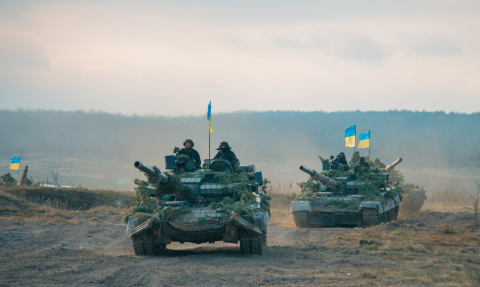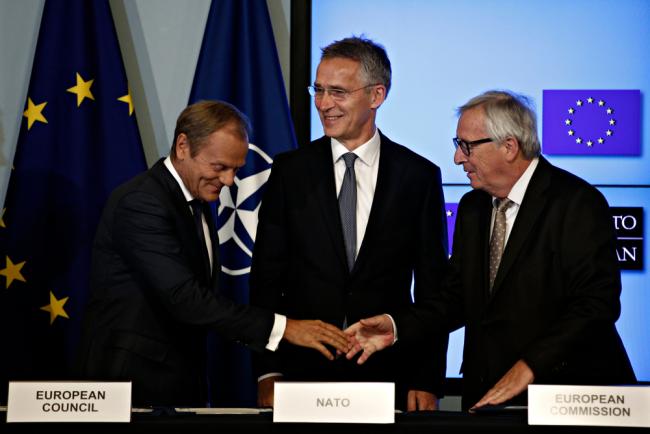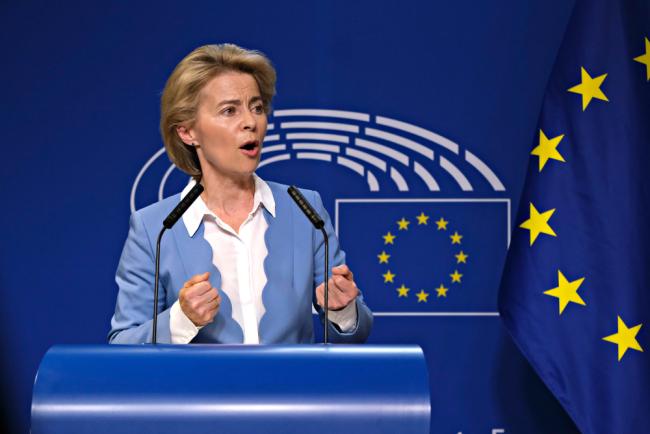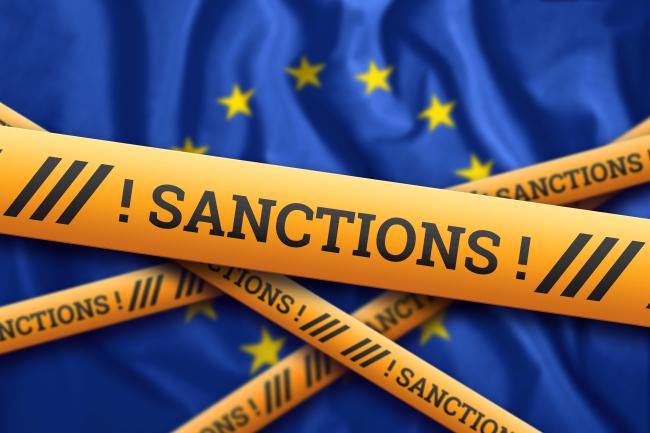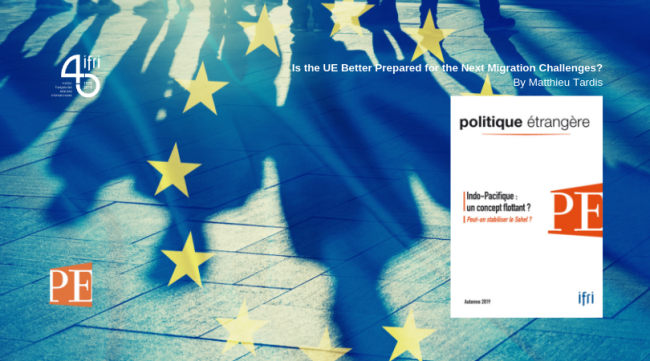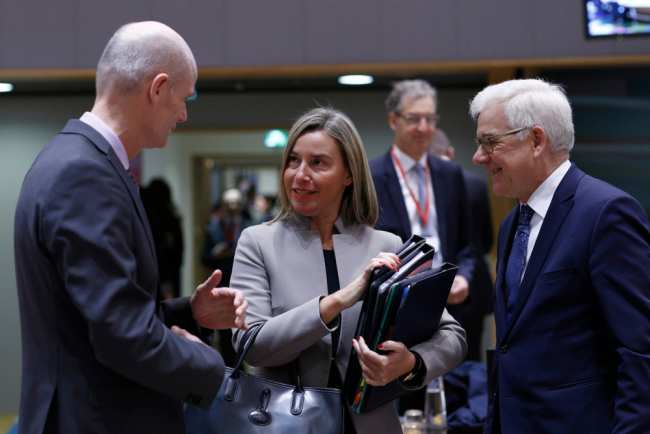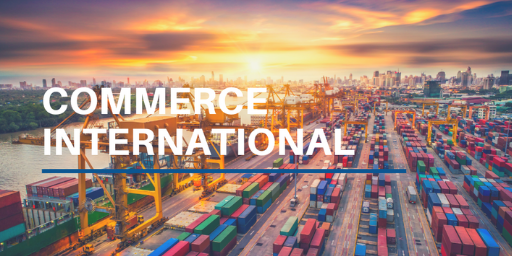Europe’s architecture of security in the current strategic environment: Taking the path toward "strategic autonomy"
As the world stage is marked by renewed great power competition, Europe lacks proper means to assert and defend its own independent political view. Despite this backdrop, the authors of this report contend that the current stalemate can be overcome with a collective and inclusive approach.
Mutual Reinforcement: CSDP and NATO in the Face of Rising Challenges
Over the past five years, several political and security developments have made it increasingly necessary to look at European Union (EU) / North Atlantic Treaty Organization (NATO) relations through a different lens.
The War on Carbon. Five Priorities for the European Green Deal
2019 has marked a fundamental turning point in the energy transition of the European Union (EU).
The Sanctions Policy of the European Union: Multilateral Ambitions Versus Power Politics
Restrictive measures are a major instrument of the European Union (EU)’s external action, which has emerged as one of the world’s leading sanctions emitters. The EU has thus leveraged the size of its market and its economic and financial clout (trade relations, aid policy and bilateral agreements).
Sub-Surface Competition in the Euro-Atlantic Area: The Challenge to Western Dominance
Russia’s Syrian campaign has demonstrated the returning challenge the West faces in the underwater domain.
Is the EU Better Prepared for the Next Migration Challenges?
The European Union did respond to the massive influx of migrants in 2015, but with short-term measures, which have widened the divisions between member states.
Democratization First. The Community Method in CFSP as a Precondition for a European Defense Policy
The recent calls for the militarization of the EU’s Common Foreign and Security Policy (CFSP) require first a comprehensive democratization of European foreign and security policy.
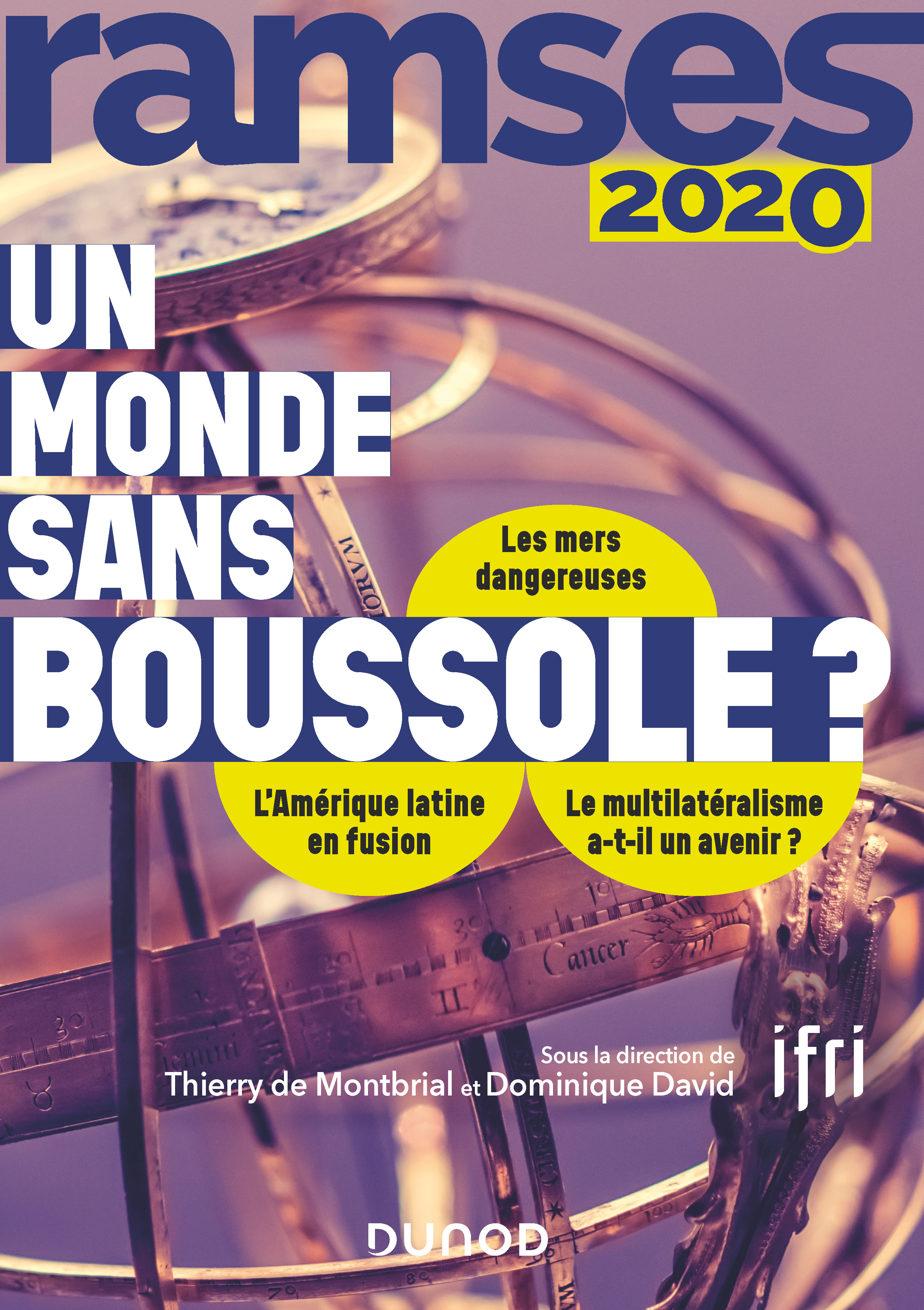
RAMSES 2020. A World without a Compass?
RAMSES 2020. A World without a Compass?, written by Ifri's research team and external experts, offers an in-depth and up-to-date analysis of geopolitics in today’s world.
Tackling inequalities and vulnerabilities: Why and how G7 development policies could do better
The G7 has made the fight against inequality a crosscutting issue for the Biarritz Summit. The Development Ministerial will address issues of vulnerability, especially the Sahel Alliance. This focus on inequalities and vulnerabilities is nonetheless inseparable from a general discussion on financing sustainable development.
International trade - Rekindling interest in a multilateral rules-based approach
International trade is one of the themes that used to constitute the very raison d’être of the G7, alongside international security and energy policy.
The Development of Public-Private Partnerships in the European Satcom Sector
Public-Private Partnerships (PPPs) could help to enhance the societal benefits of communication satellites. However, European public entities must avoid the mistakes made during the Galileo concession negotiations.
Russia and Turkey: Rethinking Europe to Contest Outsider Status
International relations in Europe are now entering a period of flux as the legacy of the cold war wanes and the "outsider" countries, notably Russia and Turkey, are rethinking their mutual relations as well as their place in the world.
The Trans-Saharan Gas Pipeline: An Illusion or a Real Prospect
8 % of worldwide gas reserves are located on the African continent. Its relative economic weakness and the almost total absence of gas networks leads to a very reduced interior consumption (almost nonexistent outside Algeria and Egypt) which permits an important export capacity of the continent’s gas. Linking Sub-Saharan-Africa and the European Union (EU) with a gas pipeline thus is a reasonable project in economic terms.
Support independent French research
Ifri, a foundation recognized as being of public utility, relies largely on private donors – companies and individuals – to guarantee its sustainability and intellectual independence. Through their funding, donors help maintain the Institute's position among the world's leading think tanks. By benefiting from an internationally recognized network and expertise, donors refine their understanding of geopolitical risk and its consequences on global politics and the economy. In 2024, Ifri will support more than 70 French and foreign companies and organizations.







